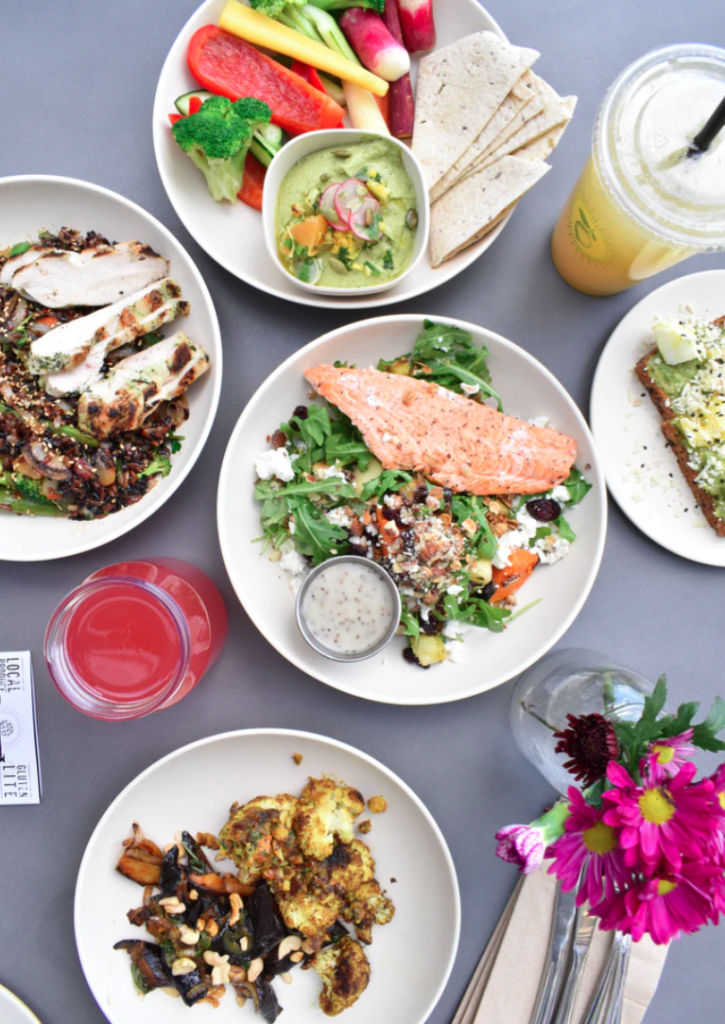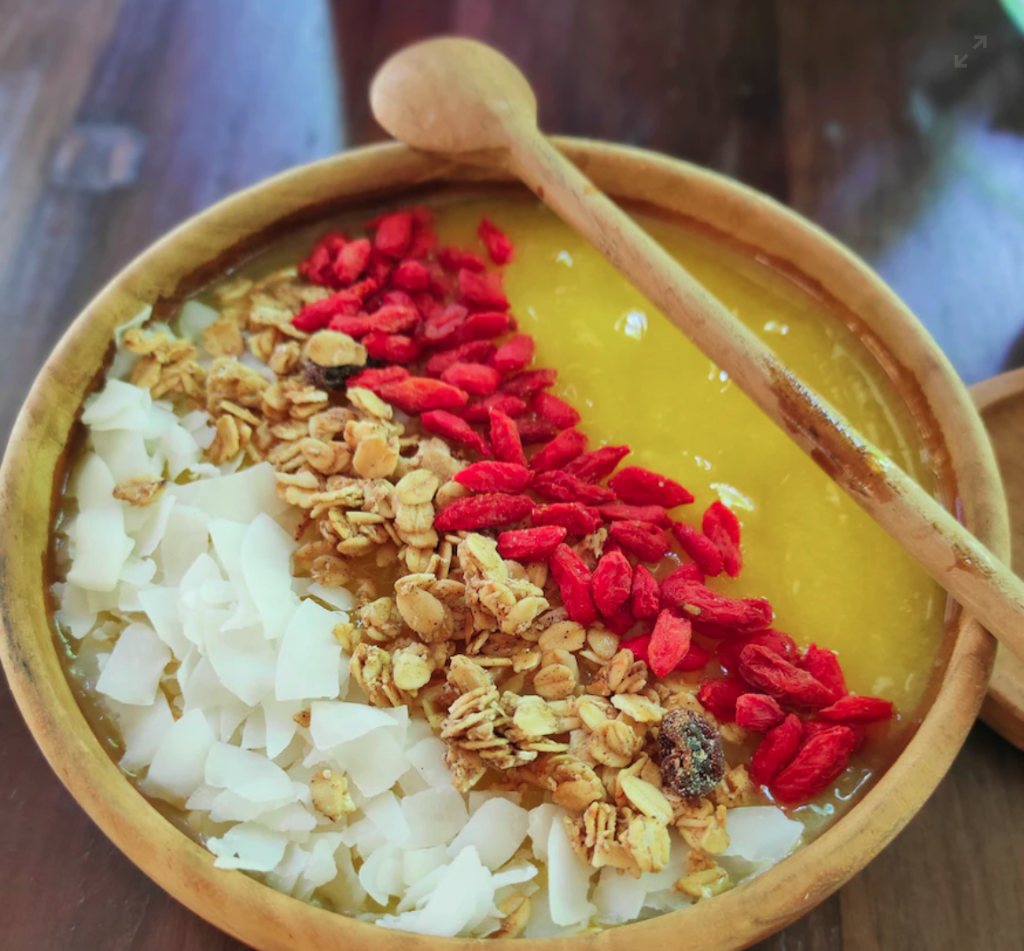Physical Address
304 North Cardinal St.
Dorchester Center, MA 02124
Physical Address
304 North Cardinal St.
Dorchester Center, MA 02124
Ever Hungry? Advice For Making A Plant-Based Diet Feel Filling
New vegans frequently experience hunger issues when eating a plant-based diet. It’s not necessarily a sign that a vegan diet isn’t for you if you’re hungry.
It’s typically one of four issues with simple solutions. Finding a solution is made simpler by taking the time to define the issue at hand.
The most frequent causes of vegan hunger are covered below, along with the best advice for feeling satisfied on a plant-based diet.
There may be affiliate links in this article. This means that if you buy something after clicking on one of these links, I might get paid a commission without charging you more. For further information, please see the complete disclosure policy.
When someone switches to a plant-based vegan diet, they frequently report having severe cravings and constant hunger.
One of three issues is most likely present. Once you are aware of the potential problems, it is simple to fix a few things and put an end to your hunger.
First Issue: Not Consuming Enough Calories
Yes, this is the most frequent cause of someone who has recently gone vegan feeling continuously hungry, believe it or not.
They are unaware that the food they are consuming now has fewer calories than the meal they were previously eating. Compared to a meal consisting exclusively of vegetables, meat and cheese have far more calories.

Second issue: Trying to be “healthy” too much
The notion that vegans primarily consume salads is another fallacy that prevents you from consuming enough calories. Not all meals need to be extremely nutritious.
In order to lose weight, if all you eat are little salads, I can assure you that by day two you’ll be starving.
Third issue: not getting enough water
Even if it doesn’t happen all the time, sometimes hunger pangs are actually thirst pangs. Water fills you up without providing any calories.
Dehydration will also make you feel lethargic and exhausted. Your body may occasionally misinterpret minor dehydration with hunger cues.
Fourth issue: Not Consuming Enough Fiber or Protein
Even if you consume enough calories, if you don’t consume enough fiber, you won’t feel satisfied.
Because of this, even after consuming a bag of kettle chips, you can still feel hungry. You will feel fuller for a longer period of time after eating meals high in fiber.
Protein is one of the foods that is the most satiating, yet it’s rare that you are short in it. Ghrelin, the hunger hormone, is decreased while hormones that make you feel full are increased by protein.
I’m going to provide the solutions now that you are aware of the issues that hunger most frequently causes. It’s a good idea to identify the cause of your hunger first because not all of these solutions will be appropriate for every probable issue.
1. Consume bigger portions
You might not be aware that you need to increase your portion sizes when you go from the SAD (standard American diet) to a plant-based diet.
This is because foods derived from plants have far fewer calories than ones derived from animals.
Unless you’re slathering your vegetables in oil or creamy sauces made of nuts, you can feel safe increasing the amount of food you eat without worrying about putting on weight.

You could still envision your vegan meals as side dishes rather than full meals in your head. Give yourself the benefit of eating more food since you are a vegan.
2. Consume more water
Are you famished or only thirsty? In fact, if you always reach directly for the meal, your body can even become little perplexed.
It can be beneficial to drink a glass of water, wait 15 minutes, and then reevaluate if you were indeed hungry if you’re not used to slowing down and paying attention to your body’s signals.
Try sparkling water with fruit essence if you want to stay hydrated but want to avoid soda. The bubbles, for some reason, influence your perception of how full you are.
3. Enjoy Your Food Slowly.
Your body might not have enough time to recognize fullness if you eat quickly. After eating, it may take 20 minutes for your body’s signals to catch up.
For this reason, eating more slowly provides benefits, particularly if you’re trying to reduce weight. If you wolf down your meal, you might discover that you overate 20 minutes later.
Start your meal with a mild soup for an additional method of slowing yourself down. Soup is a food that takes longer to consume and may require waiting for it to cool down between bites.
4. Consume More Fiber
Fiber prevents insulin rises since it takes a while to digest. You can feel satisfied for a longer period of time by eating more meals high in fiber.
Additionally essential for digestion is fiber. The mass keeps food moving through your system, reducing the likelihood that you may become constipated.
Beans (which also contain protein), whole grains, and leafy greens are some simple methods to increase your fiber intake. Complex carbs are easy to incorporate into meals and are high in fiber.
5. Consume more protein
One of the most satiating and full foods you can eat is protein. It’s crucial for vegans to obtain their protein from beans and other legumes.

By lowering the appetite hormone ghrelin, protein is a macronutrient that helps you feel full. Even those who dislike the flavor of beans can typically tolerate them when they are concealed in food.
6. Consume more fat
Although they have the highest calorie content of any food, fats also make you feel full and aid in nutritional absorption. The key is to exercise restraint.
It only takes half an avocado or a spoonful of oil in salad dressing. Increasing the amount of fat even more is a terrific approach to obtain greater calorie levels if you aren’t receiving enough calories.
The most popular nut butter is peanut butter, although other options include cashew and almond butter. If you want to avoid nuts, you could try sunflower seed butter.
If you’re attempting to reduce weight, err on the side of consuming fewer extra fats. Although eating fats is necessary, eating too much will cause you to quickly exceed your calorie limit.
Fats aid in the absorption of nutrients as well.
7. Increase Complex Carbs
Foods with complex carbs take longer to digest in your digestive system. Whole grains, veggies, legumes, whole fruits, and even potatoes are among them.
With potatoes in particular, you feel more satisfied per calorie thanks to their high satiety score. As long as you don’t fried them or cover them in oil, potatoes are actually far healthier than most people realize.
For breakfast, oatmeal is a simple complex carb that tastes good. If you’re worried about using a lot of sugar to make oats more palatable, have a look at these suggestions for sugar-free oatmeal sweetening.
8. Select Satisfying Snacks
If you enjoy nibbling throughout the day, the food you choose will have a significant impact on whether or not you feel satisfied.
Avoid empty calories because they just serve to increase your hunger. Choose snacks with some protein content instead.
A handful of nuts, roasted chickpeas, kale chips, or air-fried seasoned potatoes might all be used as this.
9. Sip boosted smoothies.
Smoothies are fantastic because they just require one ripe banana to conceal a large quantity of greens. You can’t even taste the greens after, I promise.

You may also add quick oats, chia seeds, flax seeds, hemp seeds, and even beans to your smoothie to give it more substance. Even if it sounds unusual, you may use cooked chickpeas in your smoothie without the flavor suffering.
This will improve the fiber, protein, and nutritional profile of your smoothie.
10. Ensure that your mind is engaged.
We frequently deceive ourselves into believing we are hungry when we are actually just bored. These food associations that we have developed cause us to consume mindlessly.
Sitting on the couch at night may cause you to mistakenly believe you are hungry for a snack when, in reality, it has become a habit. The quickest method to stop a habit is to keep your mind occupied with something else.
In order to keep your body moving while watching television, this could involve doing something with your hands. When they are feeling restless, some folks I know like to knit and crochet to keep their hands busy.
Over time, you’ll lose the connection to food and establish a new non-food link.
11. Become accustomed to not being overwhelmed
Being unstuffed can take some getting used to, especially if you’re attempting to reduce weight. The biggest aid in making something normal is frequently a shift in attitude.
Adopt the Japanese practice of not eating anything more than you are 80% full. This will prevent you from overeating by giving your body enough time to understand that you are actually entirely satisfied.
Spend some time identifying actual hunger rather than food desires or addictions.
For more information you can click: